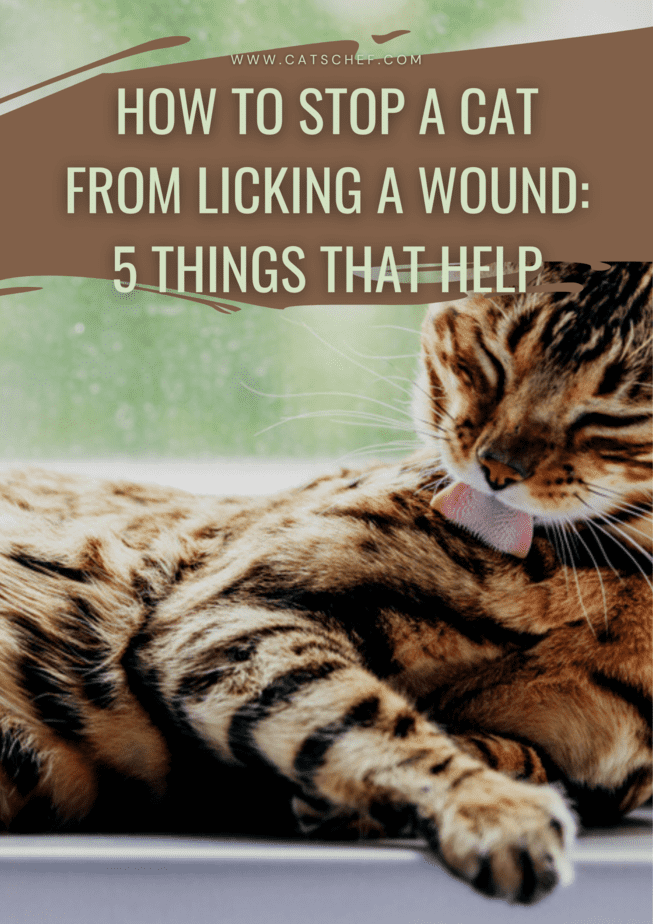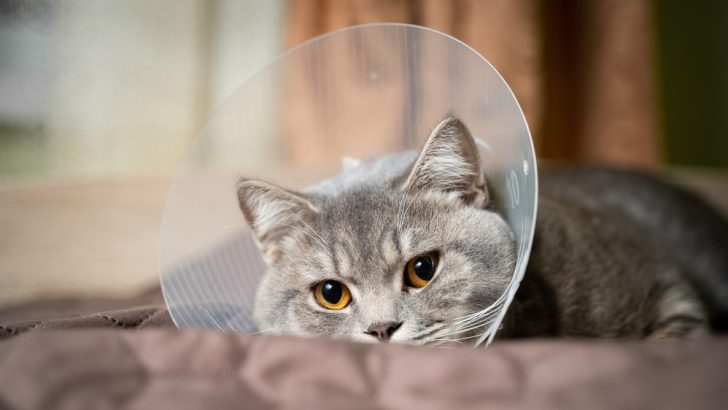Felines can exhibit some unwanted behavior that we try to eliminate for their own good. But how to stop a cat from licking a wound? It truly feels like an impossible mission.
It’s true that these creatures can sometimes give us a hard time but, ultimately, it’s all worth it. We just want them to be safe and sound.
However, maybe your pet has hurt herself recently or undergone some kind of surgery. Perhaps the wound isn’t even that big but your cat seems to constantly lick it.
This isn’t something you want her to do because things can easily go wrong. If she continues to touch her wound, she can rip off the bandages and severe licking can cause infections.
For first-time pet parents, the healing period can be a real nightmare. You can’t take your eyes off of your cat even for one minute. I know this because whenever I turned my back to my felines for one second, they were on the go.
The cone of shame helped me when I spayed my first pet, thankfully. However, I had to get my hands dirty with my second cat, Simba. He’s a rambunctious, lively feline that just hated the plastic thing.
When I say he hated it, I mean how he used to freak out anytime I’d put it on him and trash the whole house. Because of all the movement and craziness, his wound kept bleeding even though he wasn’t licking it.
So, in that case, it didn’t really work for us. But don’t get discouraged because every feline’s personality is different. Perhaps your pet also has a problem with a plastic collar but maybe she’ll be wonderful with some bandages!
There’s really no guarantee when it comes to cats and their behaviors. Thankfully, there are many other helpful ways that can show you how you can stop your cat from licking wounds.
Why do cats lick their wounds?
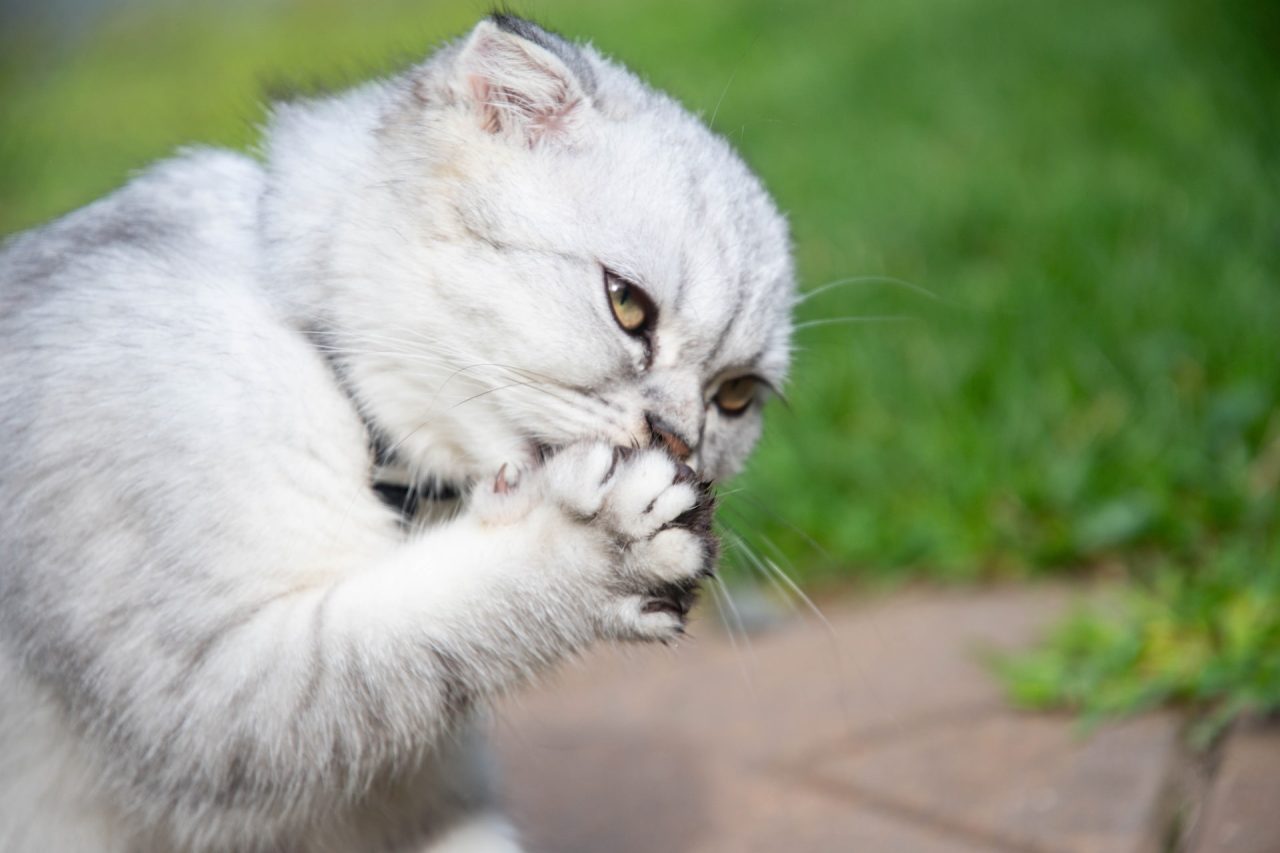
Felines are magnificent creatures that follow the rules of the animal world. There aren’t any strictly written ones, but they are all related to their instincts.
They play a huge deal in the feline world because, in some situations, they can mean the difference between life and death. Licking the wound is also one of your pet’s natural urges.
If your furbaby was out in the wild, this behavior could potentially save her by healing the wound. Cats have several antibacterial compounds in their mouth which might help soothe the pain and lick the wound clean.
Grooming is a very important part of the feline world used for brushing oneself, bonding with other cats, and so on. Therefore, your pet might groom or lick her wound to comfort herself and make her at ease, especially if the wound’s giving her a hard time.
On the other hand, feline saliva also contains some bacteria that can be bad for your cat. Just as it can help heal the wound, it might also have the opposite effect. Unfortunately, it’s possible that your cat licking the wound causes it to get infected.
So, a cat’s saliva isn’t really that advantageous after all. Especially if your cat spends a lot of time outdoors where she can pick up all kinds of different bacteria and diseases. Therefore, it’s best you try and stop your cat from licking the wound until it gets infected!
How to stop a cat from licking a wound?
When cats have something on their mind, it’s usually a difficult task to distract them from going for it. I know this firsthand because I have a pet that’s so stubborn and wants to have things his way all the time.
However, we, as cat parents, must sometimes draw a line and manage our feline’s spoiled attitude for their own sake. If you see your pet lick her wounds once or twice, it shouldn’t be a big deal.
On the other hand, if she’s excessively licking it and doesn’t intend to stop, it might be a good time to intervene. She probably won’t like this, but you have to find a way to stop that behavior.
Licking and biting in a cat’s world have a lot of meanings. Most of the time, felines use it to transfer some kind of message. Therefore, keep track of your furbaby’s behavior and see if she focuses only on the wound.
1. Bandage
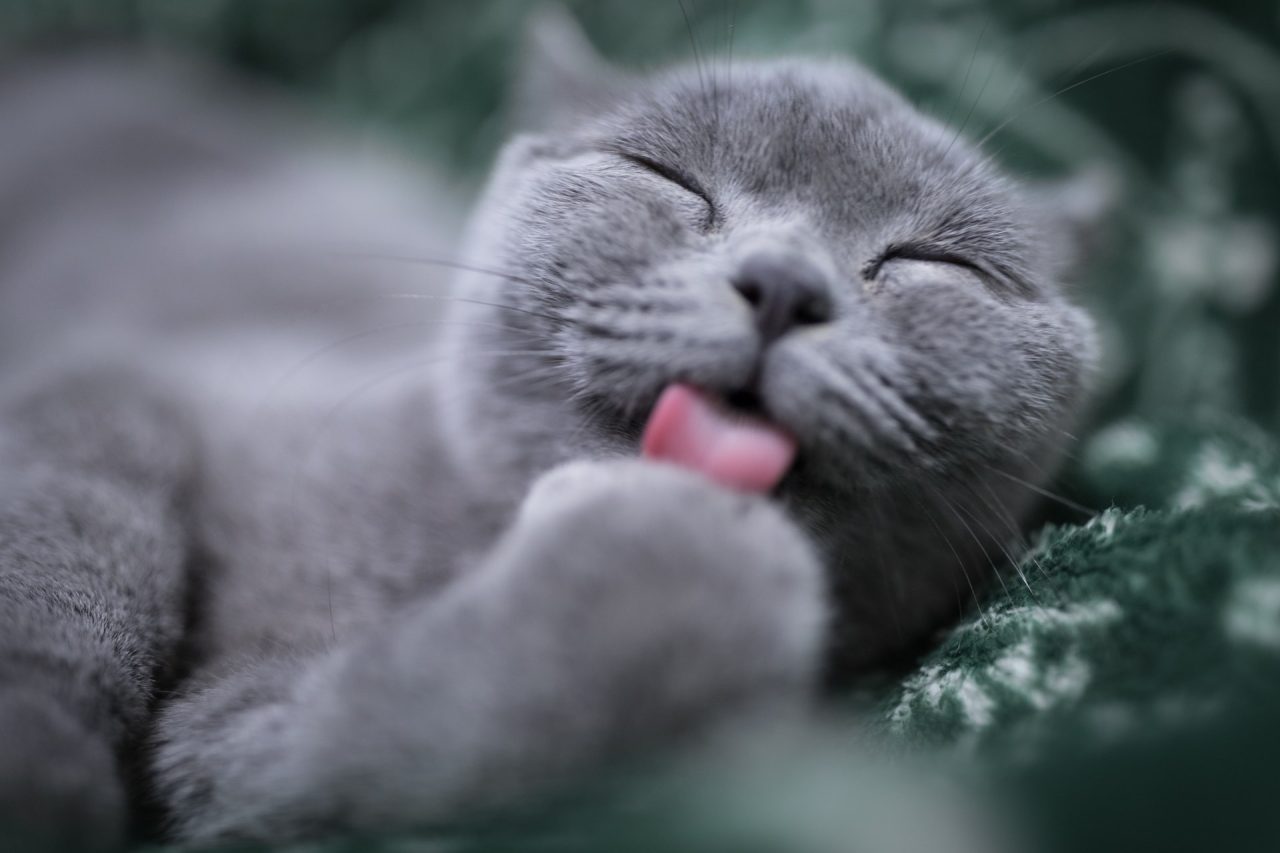
Bandages are a safe way to stop your cat from licking her wound. You can always visit the vet and ask them to help you out with this part.
However, if it’s a deeper and bigger wound that needs a bit more attention and time to heal, it will take more than one bandage to patch it up.
You’ll need to change your pet’s bandages every day. Also, you have to make sure that the dressings are always clean and dry because this helps the wound heal faster.
If she rips off the bandages, wets them, or gets them dirty, she’s risking the wound getting infected and slowing the healing process. Ripping it off definitely won’t stop your cat from licking her wound!
Bandages might be a good idea for some calmer pets. On the other hand, you might not have the same luck. Perhaps your pet won’t like them and she’ll try to tear them and scratch them.
This might make the situation even worse because your pet could hurt herself even more and make her wound bleed with all the movement. If the bandages don’t work, maybe you should try out something else.
2. Cone of shame
Oh, that famous cone of shame! This is kind of a double-edged sword. In some cases, it will help out a ton but on the other hand, it might make your life living hell!
It’s a plastic that goes around your feline’s neck and she’ll either tolerate it or all hell will break loose. Trust me, there’s no in-between.
I got Simba one of these when he was neutered and it was the worst mistake I’ve made in my whole life. Jokes aside, he really didn’t like it and kept letting me know that he was not fond of this alien thing!
Felines are usually sensitive creatures and they’re especially sensitive to changes. So it must be the unexpected cone of shame that made him act all crazy for the first two days after his surgery.
Thankfully, the vets are aware that not all pets will handle these new situations very calmly. Therefore, they had another trick up their sleeve for me and Simba.
3. Use ointments and medication
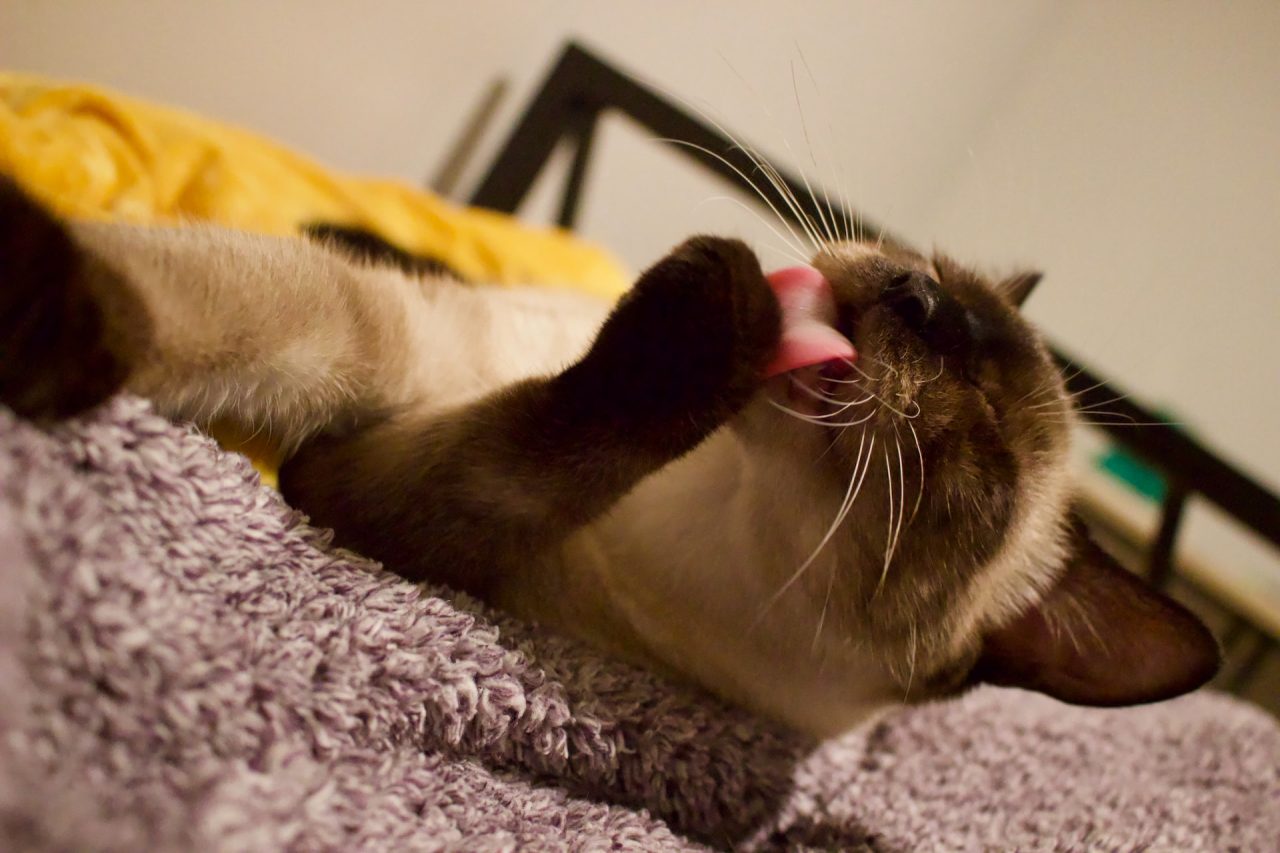
If you’ve ever met someone who was a nail-biter, they’ve probably told you about all the methods they tried to stop it. Just like there are ointments for humans, there are also pet-friendly ones for your furry companion.
So, if you didn’t have any luck with the cone or bandages, perhaps ointments are your life-saving tip. These oily preparations are made specifically to put off your feline and make her stop licking her wound.
It’s safe for her and usually has a bitter taste. It doesn’t take long for cats to just give up and realize it’s not worth it. It took me a couple of tries with my stubborn cat, but thankfully, it worked!
4. Spray the wound
Next to various ointments and oils for deterring cats, you can also buy one of the antiseptic sprays. You can spray down around the wound area and it’ll probably be enough for her to back off.
However, before making this decision, you should first talk to your veterinarian if it’s safe and which one should you purchase. When trying to figure out how to stop a cat from licking a wound, you need to opt for a pet-safe alternative.
5. Occupy your cat
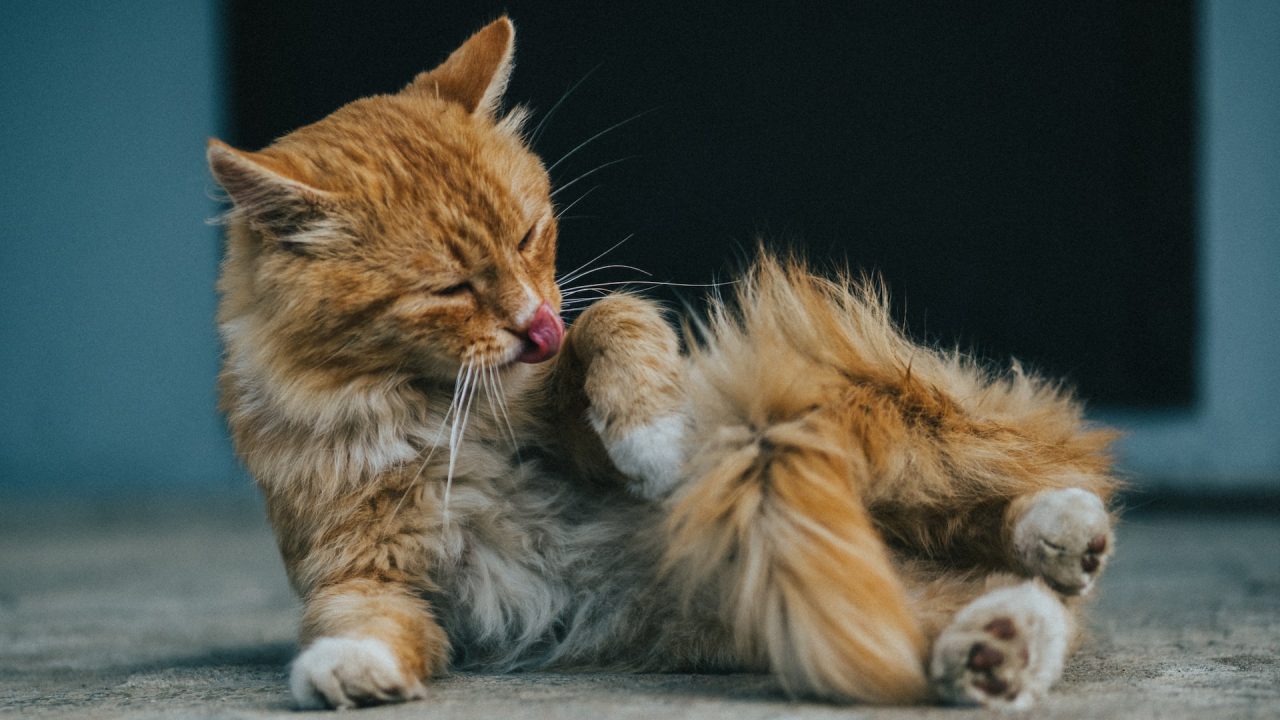
One of the best and most cost-effective ways you can make your cat stop licking her wound is to make her busy. Try to keep her mind occupied so she doesn’t have any time to even think about the wound.
What will probably work is lots and lots of playtime, as well as treats and food. I know my greedy pets will never turn down their favorite cat treats and dried meat.
By tiring her out, she’ll sleep better and night so she won’t even pay attention to her wound. Throughout the day, she’ll be busy with all the playing and activities with you!
